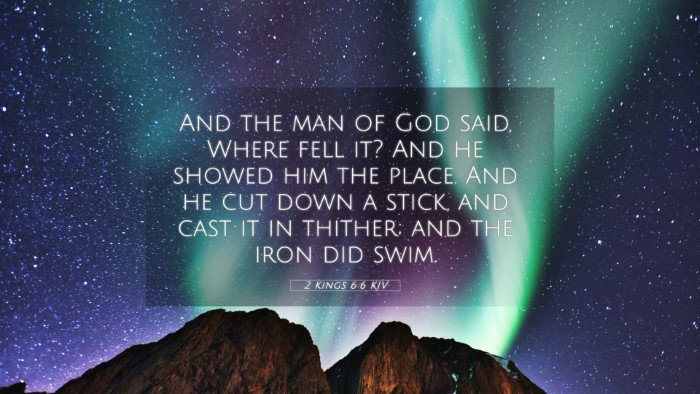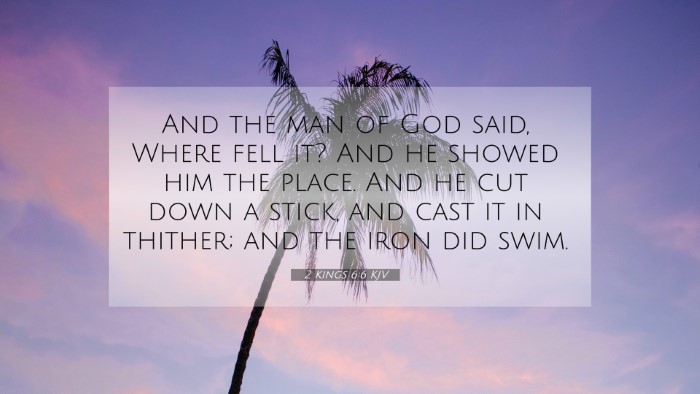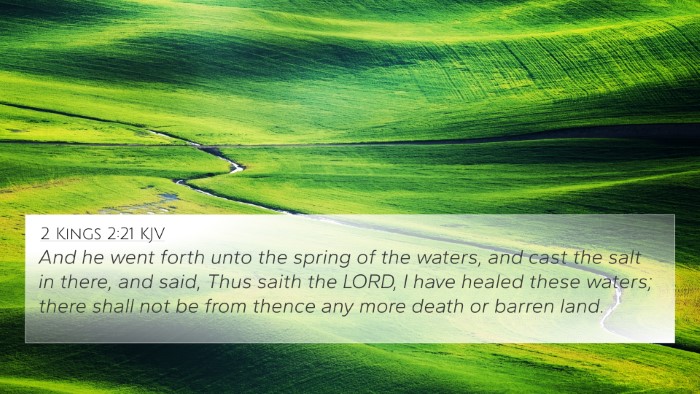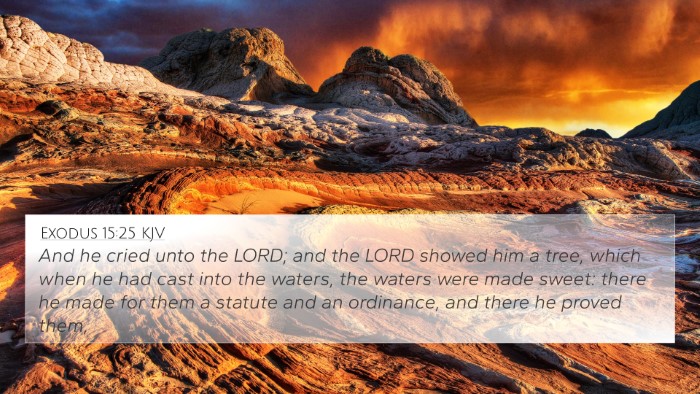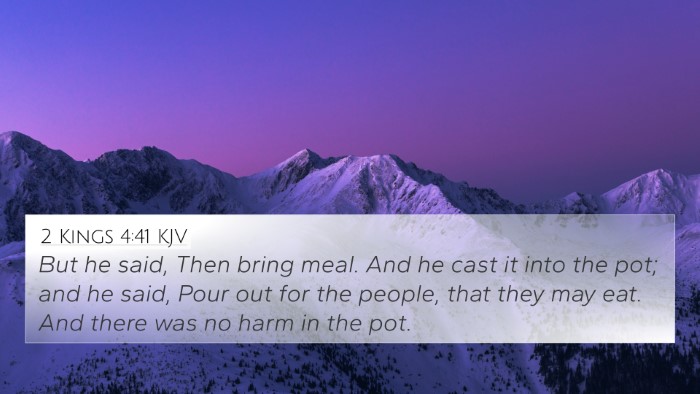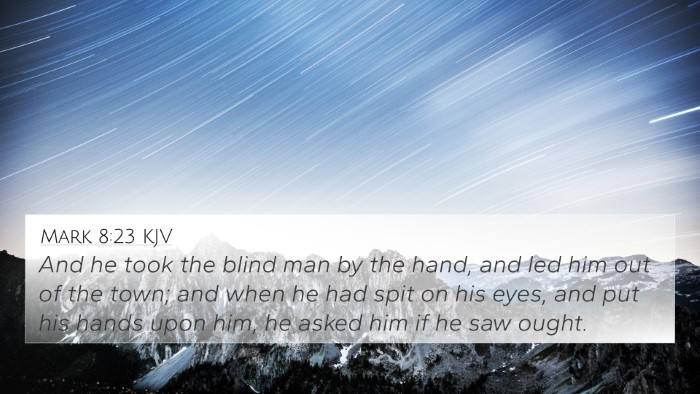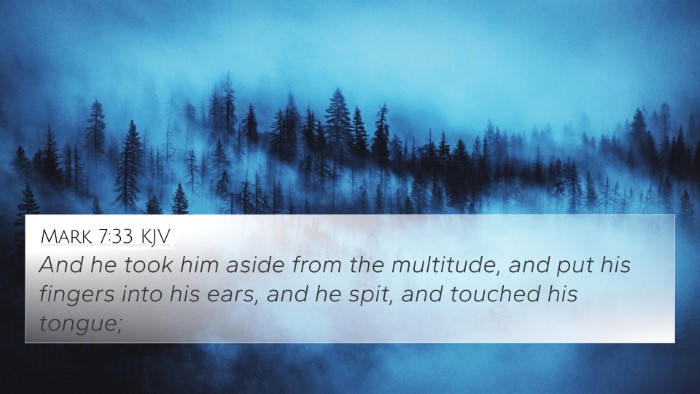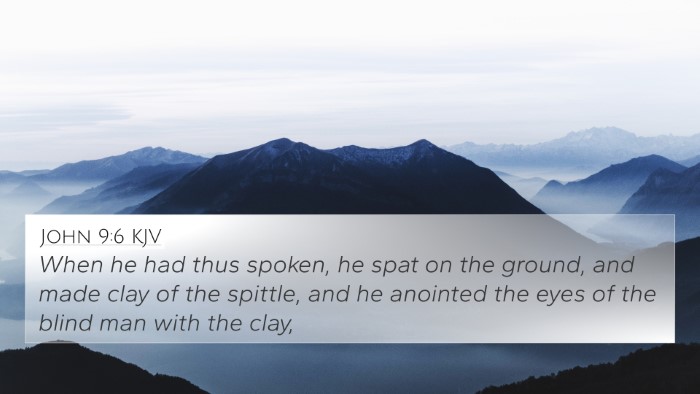Understanding 2 Kings 6:6
Verse Context: The verse states, "And the man of God said, Where fell it? And he showed him the place. And he cut down a stick and cast it in thither; and the iron did swim." This moment occurs in the narrative of the prophet Elisha, illustrating God's miraculous intervention in a seemingly mundane situation.
Summary of Meaning
This event showcases the power of God to not only guide and assist His servants but also to demonstrate His authority over natural laws. The story emphasizes the importance of faith and the belief that God can intervene in the practical issues of life.
Commentary Insights
- Matthew Henry:
Henry emphasizes the miraculous nature of God's assistance as depicted in this passage. The incident of the floating axe head serves to remind us that even small troubles can be addressed with divine power. Elisha’s inquiry about the place where the axe head fell signifies the importance of acknowledging our losses to God.
- Albert Barnes:
Barnes reflects on the symbolism behind the axe head, noting that it represents tools or gifts that can be lost. By using a stick to retrieve it, the miraculous act illustrates how God can restore what is lost. Barnes also comments on the practical aspects of Elisha’s ministry where he attends to others’ needs, highlighting a compassionate God who cares for His people.
- Adam Clarke:
Clarke provides an analysis of the axe head itself, interpreting it as a representation of spiritual warfare. He suggests that the loss of the axe head illustrates the dangers of becoming ineffective in our spiritual endeavors. God’s intervention, through Elisha, teaches the importance of seeking divine help in restoring our capacities and effectiveness in serving Him.
Cross-References
This verse exhibits various connections to other scripture passages that reflect similar themes of divine intervention and restoration:
- Exodus 15:25: The miracle of water healing bitterness, showcasing God’s provision.
- 2 Kings 4:1-7: The story of the widow’s oil highlights Elisha’s miraculous provision, connecting with themes of need and divine supply.
- Matthew 14:29: Peter walking on water reflects the theme of faith leading to miraculous happenings.
- Hebrews 11:1: Faith as assurance ties into the understanding that belief precedes divine action.
- Isaiah 54:17: Assurance of God's protection relates to overcoming calamities, similar to the recovery illustrated in 2 Kings.
- Mark 9:23: Jesus' words on belief link back to trusting in God’s power for restoration.
- Acts 3:6-8: Peter healing the lame man through faith emphasizes God's continuity of miraculous events through His chosen servants.
Thematic Connections
The overarching themes found in 2 Kings 6:6 relate closely to God's providential care, restoration, and the significant role of faith in accessing divine assistance. The narrative presents an illustrative account of how God cares for the little details of life, encouraging believers to acknowledge and seek Him in all matters.
Bible Study Applications
Engaging with 2 Kings 6:6 provides insights into a practical approach for understanding the interplay between faith and God’s miracles:
- Contemplative Reflection: Reflect on areas in life where you may feel ineffective or in need of restoration.
- Prayer for Intervention: As the prophets did, seek God’s assistance in both large and small matters.
- Faith in Action: Use this scriptural moment as a basis for exercising faith in your daily life.
Conclusion
2 Kings 6:6 serves as a powerful reminder of God's grace and his ability to manage the complexities of our lives. Through the narratives selected in public domain commentaries, readers can discern not just historical or theological insights, but a personal call to faith and reliance on God's powerful hand in all circumstances. This verse encourages believers to interconnect their spiritual journeys with scriptural themes and references that continually reinforce the message of hope and divine intervention.

